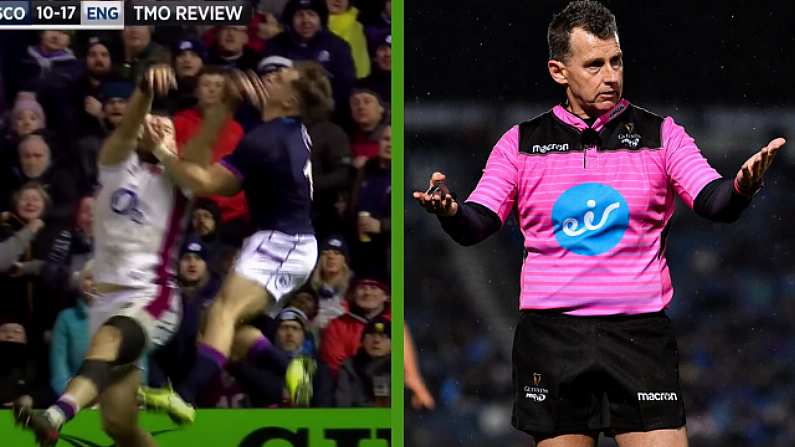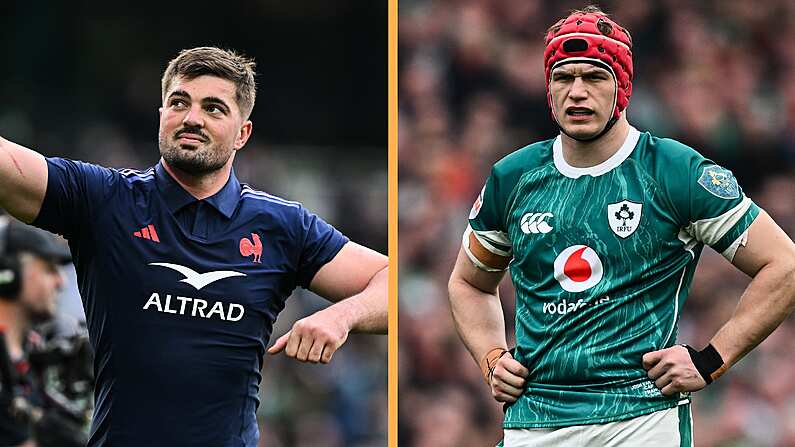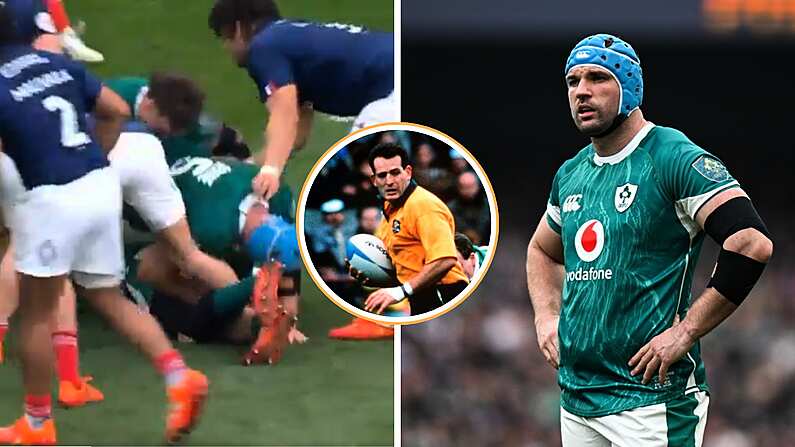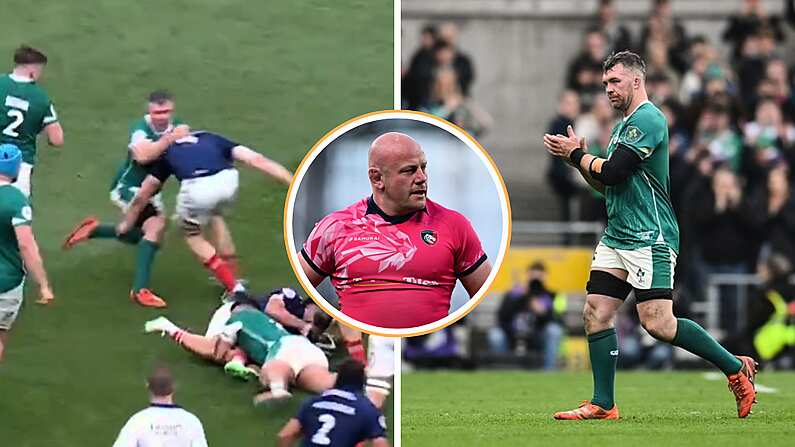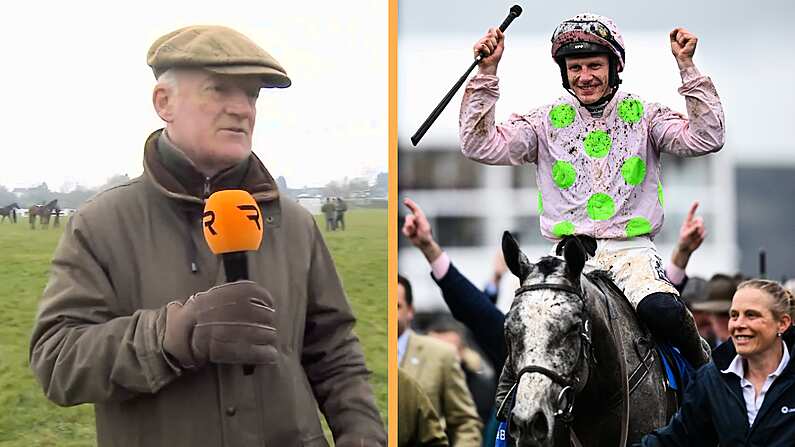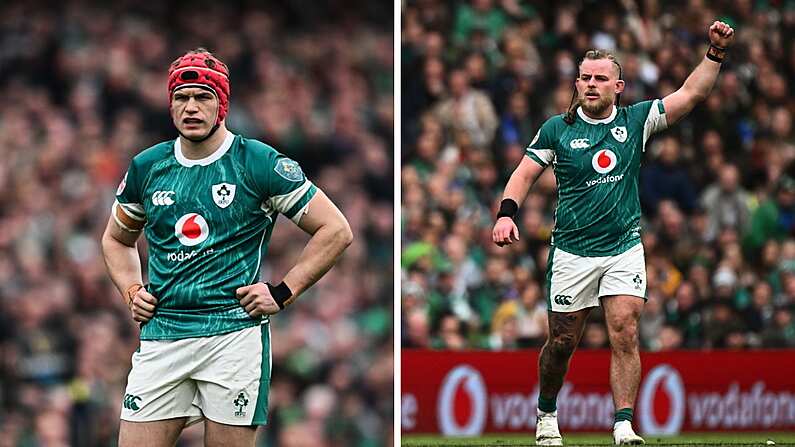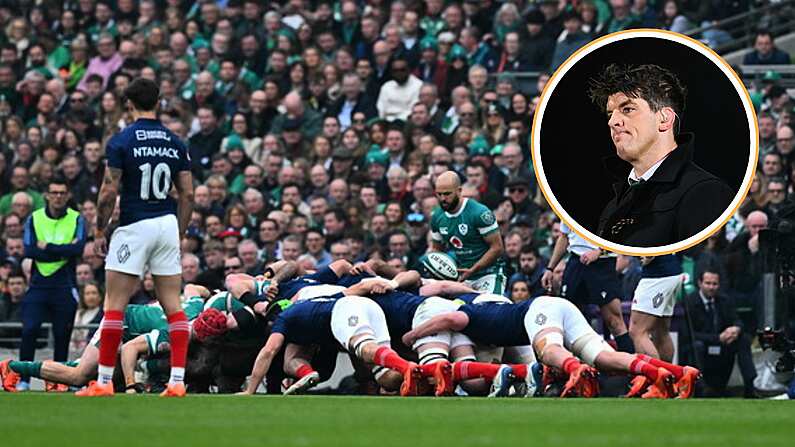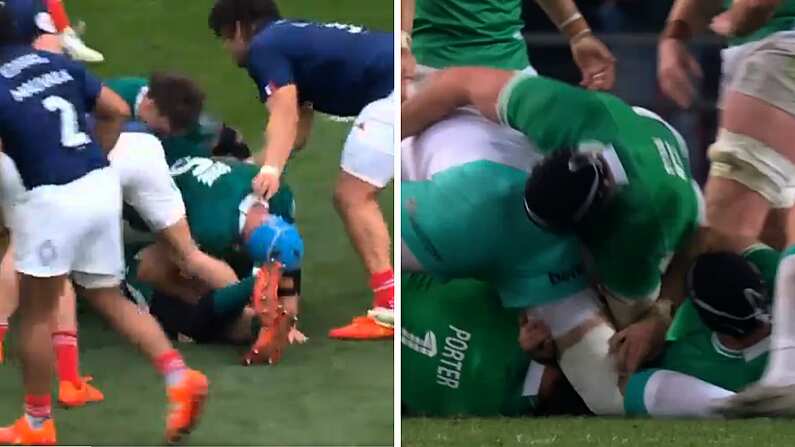Much of the discourse surrounding England and Scotland’s Six Nations clash on Saturday revolved around the yellow card and penalty try decision in the 65th minute, which effectively won Scotland the game.
It seemed like a harsh outcome for the English and the yellow carded Luke Cowan-Dickie considering the seemingly small error that was made by the English hooker.
Cowan-Dickie had slapped a Scottish cross-field kick into touch as Darcy Graham waited to collect it, and presumably score.
Most agreed with the referee’s decision, however there were some pundits and fans who thought it was the wrong call. In this clip from Virgin Media Sport, all three pundits disagree with the decision by ref Ben O'Keeffe. The clip went viral in aftermath of the game as many fans wondered how the panel defined the concept 'probable try'.
Scotland's penalty try vs England has caused a bit of debate.
We've looked at the actual rule from World Rugby.
Matt Williams, Alan Quinlan and Sene Naoupu all believe it was a harsh decision.#SCOvENG #GuinnessSixNations pic.twitter.com/dmbGWeR6Lb— Virgin Media Sport (@VMSportIE) February 6, 2022
What most will agree on is that this won't be the last controversial call of the 2022 Six Nations.
Six Nations Legend Nigel Owens
The ever popular and recently retired referee Nigel Owens has given his definitive take on the situation, which will hopefully put the discussion to bed.
The penalty try from Scotland's Six Nations victory over England has had everybody talking... @Nigelrefowens gives an assessment of the decision 💭#WhistleWatch | @emirates
— World Rugby (@WorldRugby) February 9, 2022
He makes it clears that of Cowan-Dickie “would have made a genuine attempt to catch the ball, and would’ve lost it forward, and knocked it on, it would have been a scrum down and a Scottish put in, unless Scotland would have taken advantage of course.”
However, as we can clearly see in the replays, Cowan-Dickie slaps the ball into touch with no attempt to catch it. Owens points out that this is a penalty and a yellow card regardless of whether a try would have been scored. A deliberate knock-on and throwing a ball into touch are both illegal actions.
The second part of the decision if whether it should have been a penalty try. Owens makes it clear that the question is ;would it a probably have been score, not possibly or definitely, but probably being the “keyword”.
The English hooker must be taken out of the referees decision “once he has committed the act of foul play.” Therefore whether Cowan-Dickie would have tackled Graham is irrelevant.
It is unlikely the English cover would have been able to catch Graham and hence why he probably would have scored and why a penalty try was awarded.
And finally, Owens explains that “when you give a penalty try the player that has committed the offence has to be yellow carded. That’s in the laws of the game.”
A clear and insightful explanation from one of the best referees to ever officiate in the Six Nations.

